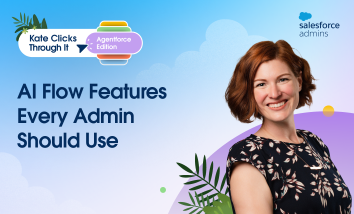Cue the confetti—we’ve got a BIG announcement for our #AwesomeAdmin community! We are very excited to announce the launch of Season 2 of the popular Salesforce+ series, “How I Solved It”! Hosted by Principal Admin Evangelist Gillian Bruce, this series explores how Salesforce Admins solve business problems using automation, data, and design tools. In each […]






